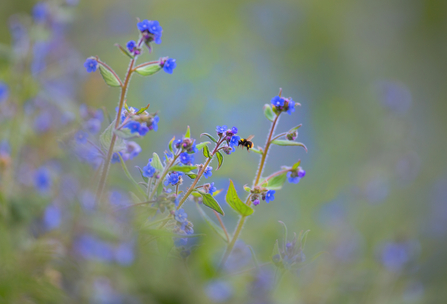We are drenching our countryside in pesticides. Over 16,000 tons of pesticides are applied to UK fields each year, and the total area treated with these chemicals has increased by 63% since 1990. Shockingly, these statistics only cover pesticides used in agriculture – this doesn’t even begin to measure the extent of chemical pesticides widely used in forestry, amenity, urban management, and in our homes.
Are you worried? We are.
There has been an exponential growth in synthetic chemical use over recent decades, as Government policy has incentivised a model of farming based on increasing food production through using high-yielding seed varieties, artificial fertilisers, and pesticides. It is devastating our ecosystems.
The widespread and unnecessary use of pesticides is a key driver behind the catastrophic decline of insect populations. This, in turn, threatens our food security and risks ecological collapse. In the last fifty years, human activities have reduced the numbers of insects dramatically.
Recent evidence suggests that abundance of insects may have fallen by 50% or more since 1970.
Insects are a critical part of all terrestrial and freshwater food webs, providing food for numerous larger animals such as birds, bats, reptiles, amphibians, and fish. They provide important ecosystem services and perform vital roles such as pollinating crops and wildflowers, controlling pests, improving water quality, and recycling nutrients in the soil.
It is not just insects that are threatened by pesticides. Chemicals in rivers and streams can affect drinking water and devastate aquatic wildlife, and new figures released by the Environment Agency in 2020 revealed that every single waterbody in England is failing chemical standards.


